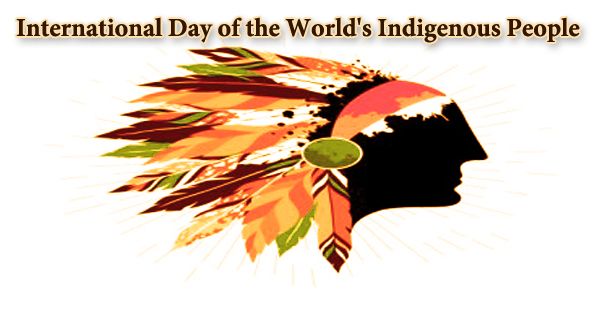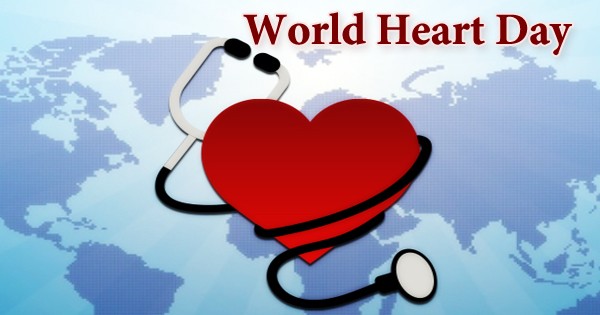The International Day of the World’s Indigenous Peoples is celebrated every year on August 9th to raise awareness and protect the rights of the world’s indigenous peoples. This occasion also recognizes the efforts and accomplishments of these individuals in addressing various global problems, such as environmental protection. There are an estimated 370 million indigenous people live in 90 countries around the world. They embody 5,000 different cultures and speak the vast majority of the world’s estimated 7,000 languages. The United Nations General Assembly agreed in resolution 49/214 of December 23, 1994, that the International Day of the World’s Indigenous Peoples will be celebrated every year on August 9th. The UN Working Group on Indigenous Populations of the Sub-Commission on the Promotion and Protection of Human Rights held its first meeting on this date in 1982. The United Nations General Assembly declared 1993 to be the International Year of Indigenous Peoples. This celebration also honors indigenous people’s accomplishments and contributions to global issues such as environmental conservation. Every year, UNESCO commemorates the Day by disseminating knowledge about projects and events related to the year’s theme. People from all over the world are invited to observe the day in order to spread the UN’s message about indigenous peoples. Educational forums and classroom programs can be used to obtain a greater understanding and respect for indigenous peoples. Indigenous peoples have long sought recognition of their cultures, ways of life, and rights to ancestral lands, territories, and natural resources, but their rights have often been violated throughout history. Indigenous peoples are currently one of the world’s most impoverished and marginalized groups of people. Native people, first people, autochthonous people, and aboriginal people are all terms used to describe them. They are ethnic groups that are the predominant inhabitants of a given area, as opposed to groups that have recently invaded, colonized, or settled the region. When groups retain the cultures and other elements of early practices associated with a specific area, they are referred to as indigenous.
The United Nations General Assembly declared the International Day of the World’s Indigenous Peoples in December 1994, to be observed every year during the first International Decade of the World’s Indigenous Peoples (1995–2004). The Assembly declared a Second International Decade, with the theme “A Decade for Action and Dignity,” from 2005 to 2015. Indigenous peoples may live in a nomadic fashion across a large region, but they are typically traditionally connected to a specific territory. The societies of indigenous people are present in almost all the inhabited continents and climate zones of the world. Many international organizations, such as the International Labor Organization, the World Bank, and the United States, have established political rights for indigenous peoples because they face threats to their economic well-being, autonomy, and access to cultural resources. The United Nations has also proclaimed certain people’s rights in order to guide national policies against collective indigenous peoples’ rights to identity, jobs, education, culture, language, natural resources, and health. Indigenous peoples live in every continent and own, occupy, or use about 22% of the world’s territory. Indigenous peoples, estimated to number between 370 and 500 million, make up the majority of the world’s cultural diversity and have developed and spoken the majority of the world’s nearly 7000 languages. Many indigenous groups continue to face marginalization, extreme poverty, and other abuses of their human rights. The International Day of the World’s Indigenous Peoples is observed to honor and appreciate the indigenous peoples’ worldwide resilience, pride, courage, and dignity. The purpose of the day is to focus on protecting the rights of the world’s indigenous peoples as well as appreciating their contributions to global communities and cultures, especially in areas such as environmental protection. In 2016, it was confirmed that approximately 2680 indigenous languages were endangered and on the verge of extinction. As a result, the United Nations named 2019 as the International Year of Indigenous Languages in order to persuade, convince, and raise awareness about Indigenous Languages. The International Day of the World’s Indigenous Peoples offers an opportunity for people of all cultures to share their experiences and empowerment. UNESCO aims to assist indigenous communities in addressing the many challenges they face, while also recognizing their important role in preserving the world’s cultural and biological diversity, through collaborations with them. The International Day of the World’s Indigenous Peoples is the strongest forum for raising awareness about the problems confronting the country’s indigenous community and working to promote and secure their rights. It is the day for self-evaluation and introspection in order to chart a course for future growth. Every year, this day is marked by a variety of themes, the majority of which are concerned with the rights and security of indigenous peoples. The theme provides a unique opportunity to honor indigenous peoples’ rights as well as their unique contribution to the attainment of peace, sustainable growth, and mutual understanding.
















